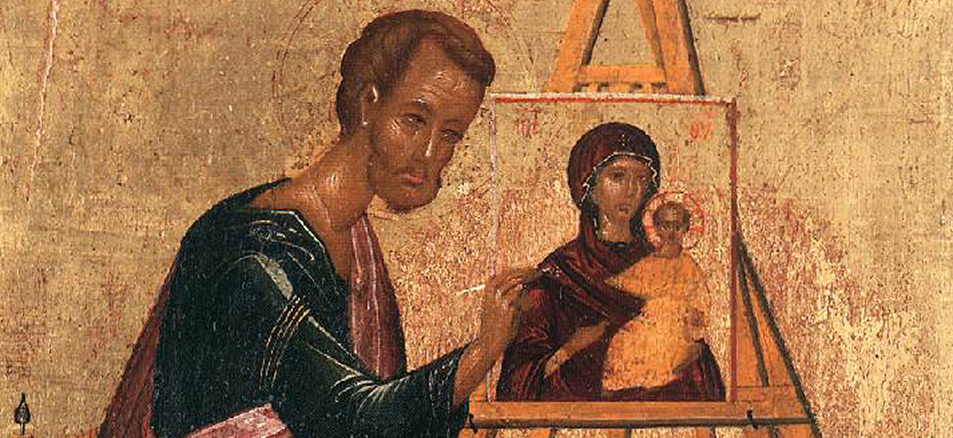
Patronage: Making good art possible

Tresta Payne
Writer
Tresta is a writer, wife, and mom of four, living in Oregon. She enjoys getting outside with her dog, Scout, reading good books, drinking good coffee, and recovering her own education.
Subscribe to her monthly email called “Make Up Your Mind”, where she shares a short essay and links to great content for people who want to read, think, and listen better, as well as a list of things she’s learning. Tresta is also a contributor to the beautiful work at The Cultivating Project, and she’s also an editor and contributor for Joyful Life Magazine.
You can find her on Instagram and twitter @trestapayne, her website trestapayne.com and Facebook: trestapaynewriter
Patron comes from latin, like so many great english words, and the root of it is pater, or father. Patronus is another latin derivative of pater and means “defender, protector, or advocate”. A patron, in the sense I’m going to use it here, is someone who advances the cause of an artist, someone who advocates for them. Like a beneficent father, a patron wants to see his artist thrive and succeed.
The Medici family of 15th century Italy is probably one of the most recognized patrons of the arts, credited with funding the invention of the piano and the opera, the construction of St. Peter’s Basilica, and supporting artists with one name, like Leonardo and Michelangelo.
Over time, our use of the word patron has changed from “someone who supports the arts”, to simply, “someone who shops somewhere”. Nowadays we refer to the customers in Walmart as patrons. Some stores have signs that say, “Thank you for your patronage.” When you go to your favorite restaurant, you are advancing the cause of that restaurant above all the other restaurants you could have chosen to give your money to, in exchange for a meal you hope to enjoy. We are regular patrons of my brother-in-law’s restaurant, but in our tiny town, it’s the only choice.
Twenty years ago, my husband and I didn’t give money to internet or cell phone providers. We didn’t pay companies who make throw-away phones that cost more than a computer; we didn’t buy fancy coffee from tiny buildings on every corner, and we didn’t pay for subscription entertainment services like Netflix, Amazon Prime, or Spotify. We had two channels, if we turned the antenna just right, and most nights we were too busy watching babies crawl around the expanse of our unfurnished home.
Sometimes I think about all those things and wonder what we did with that “extra money” we weren’t spending. Here’s what I can remember: We bought CDs, went to movie theaters and bookstores, paid real money to print our photographs, and watched Seinfeld one episode at a time. We bought lots of diapers back then, too. But think about all that money we weren’t spending on things that are ubiquitous now.
Today we pay for things we never had before and, in a terrible paradox, we consume, FOR FREE, what people spend hours and hours making—musicians, writers, speakers, painters, etc. I’m not against the internet or good coffee, believe me. Both of those things make my own work possible. But more and more I’m realizing that I need to be FOR good, responsible patronage; for supporting creators who are filling the world with truth, goodness, and beauty, and who are doing it mostly for FREE.
Did you know that a traditional publisher will not even look at an author’s proposal unless they have a large platform, consisting of multiple thousands of followers and subscribers? How many great writers will we never get to read because they are standing on an empty stage?
Were you aware that the blogger whose essays you read for free spends hundreds of dollars a year to maintain their website, not to mention the hours and anguish and angst of writing for the public? That indie artist you love to listen to will spend on average 10 to 20,000 dollars out-of-pocket to make an album she feels good about, and then spend months on the road, trying to convince people to pay for something they can listen to for free on Spotify. And while we’re buying mass-produced art at Walmart and Target, some really talented artist is painting masterpieces in his spare room after his day job, feeling guilty about spending so much money on art supplies.
This isn’t a guilt trip, I promise. I consume plenty of stuff for free—it’s hard not to. And as an artist I know the joy that comes from creating, whether money or recognition is involved or not. Artists love to share their work. But on behalf of all the artists trying to make it in the world, I am advocating for your patronage, campaigning for it, asking that we might just stop and consider how we can be a patron of the arts. The world is dark and depressing if we only have facts to look at, but art colors the truth with beauty, makes us see the goodness of God in the land of the living, and gives us a song to sing while we wait for the kingdom to come. We make a difference in the world when we notice what we pay for, and what we pay attention to.
The poet Luci Shaw, in an essay titled Imagination, Beauty, and Creativity, says, “Beauty is there to be noticed. Too often it is taken for granted because we are moving too fast to take it in and allow it to deliver its message in us. We need to pay attention. To show indifference to beauty is an insult to its Creator.” She’s talking about the beauty of nature and the capital C Creator, God. But a reversal of that idea would be: to show indifference to the (little c, human) creator is to insult the beauty they create, and in turn, their Creator.
So here are some practical ways to help us pay attention:
- Financial Support
Find out if your favorite blogger, podcaster, indie musician, or artist has a Patreon account or something similar. Literally, email them and ask how you might help. Along those same lines, get to know your artist. Most artists you enjoy, if they’re independent, are easily accessible, and would love to build friendships with the people who understand what they’re trying to do; you’d be surprised how much they’d love to have you join them in their work. Make contact and, if they’re nearby or passing through, invite them for coffee or a meal and conversation. Chip in a few bucks a month to support their work and let them know you appreciate what they do.
- Buy, encourage, review, and share
When a writer you read FOR FREE on the internet labors for years to publish a book, BUY IT. SHARE IT. CHEER THEM ON during their book release because they have to be a deep-thinking, sensitive writer as well as a markety-marketer to make it work. And before they ever publish their soul in a book, they need a long list of subscribers—that “platform”, again. Subscribe to their blog, their newsletter, or their YouTube channel.
When that artist you love releases a new song on Spotify, FOR FREE, send them 10 or 12 bucks directly through PayPal or Venmo. Share it. Like it. You’re joining their team, helping them pay their bills and buy their studio time for the next great album.
Love a certain podcast? Write a review. Do this for books, too. Share it. Email the creator an, “Atta boy! Keep going!”. Every time you go that extra mile, your favorite artist feels less alone, more cared-for, and is strengthened to keep doing the work. You have the power to do that.
Be effusive with your likes and shares, when it comes to the arts. You can do a lot for an artist without even spending a dollar, if your own dollars are tight. Promote the artists you love, because in this internet-economy, you have the power to not only encourage them with your patronage and support, but to share them with the world. FOR FREE.
I often feel stretched to meet every need and paralyzed by the sheer number of good causes there are to support. But a patron doesn’t support every artist. We aren’t called to spread our love thinly over the masses, but to encourage, honor, and support those whose art we benefit from and believe in. We enter in and become a partner to those who don’t have the support of a big platform or record label or agency. We can even replace those businessy words altogether with a family, because we are. So let’s make “being a patron” something more than being just a customer. Let’s make it an honorable work that supports our brothers and sisters. Just as prayer is interceding for another, patronage is a real way to participate in and perpetuate Kingdom work.
“I often feel stretched to meet every need and paralyzed by the sheer number of good causes there are to support. But a patron doesn’t support every artist. We aren’t called to spread our love thinly over the masses, but to encourage, honor, and support those whose art we benefit from and believe in.” Amen.
Great thoughts.
Hi Jody! Yes, I love that quote too. It’s overwhelming all the things asking, but there’s got to be some kind of way to filter. Glad you enjoyed the podcast!